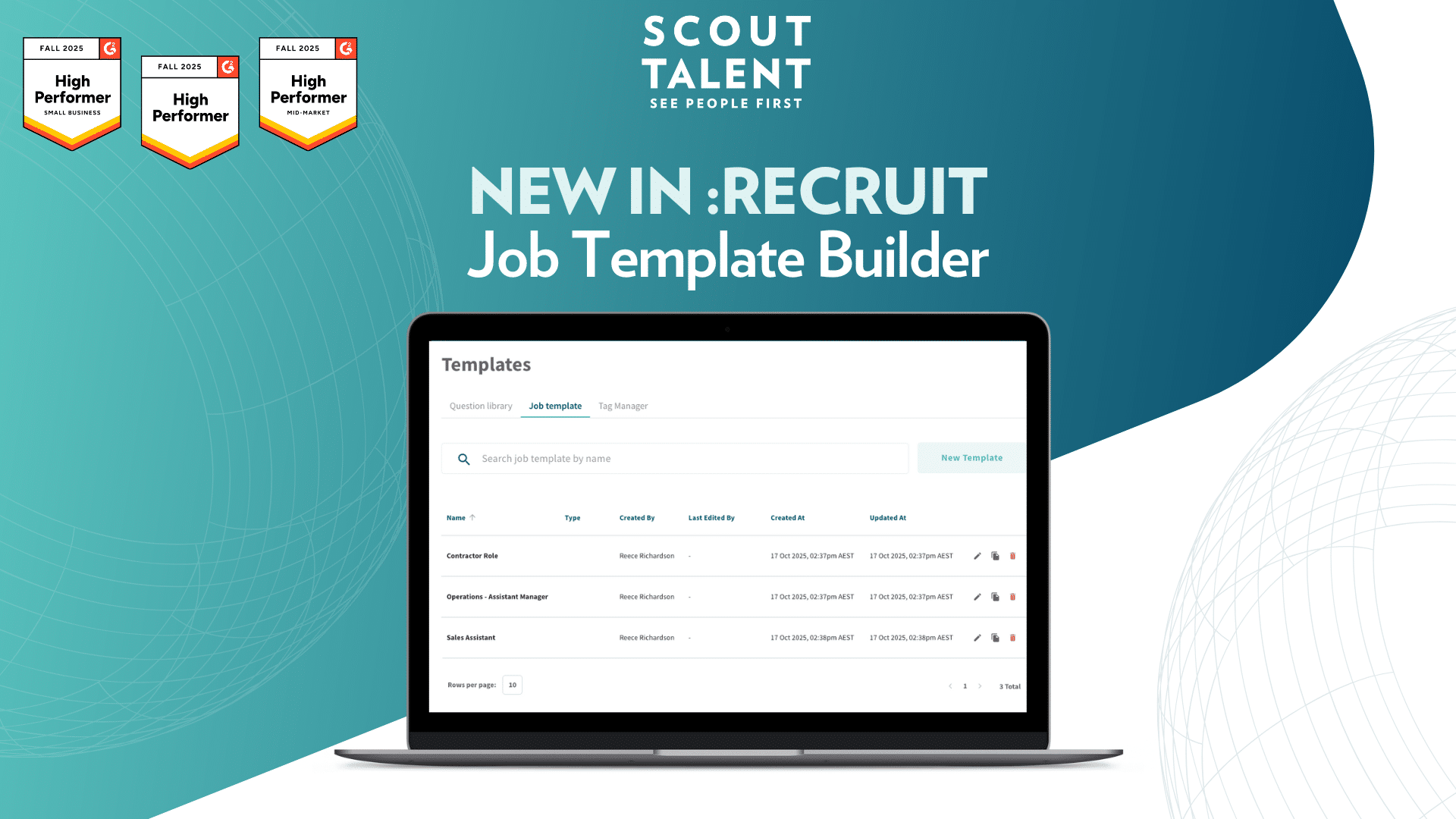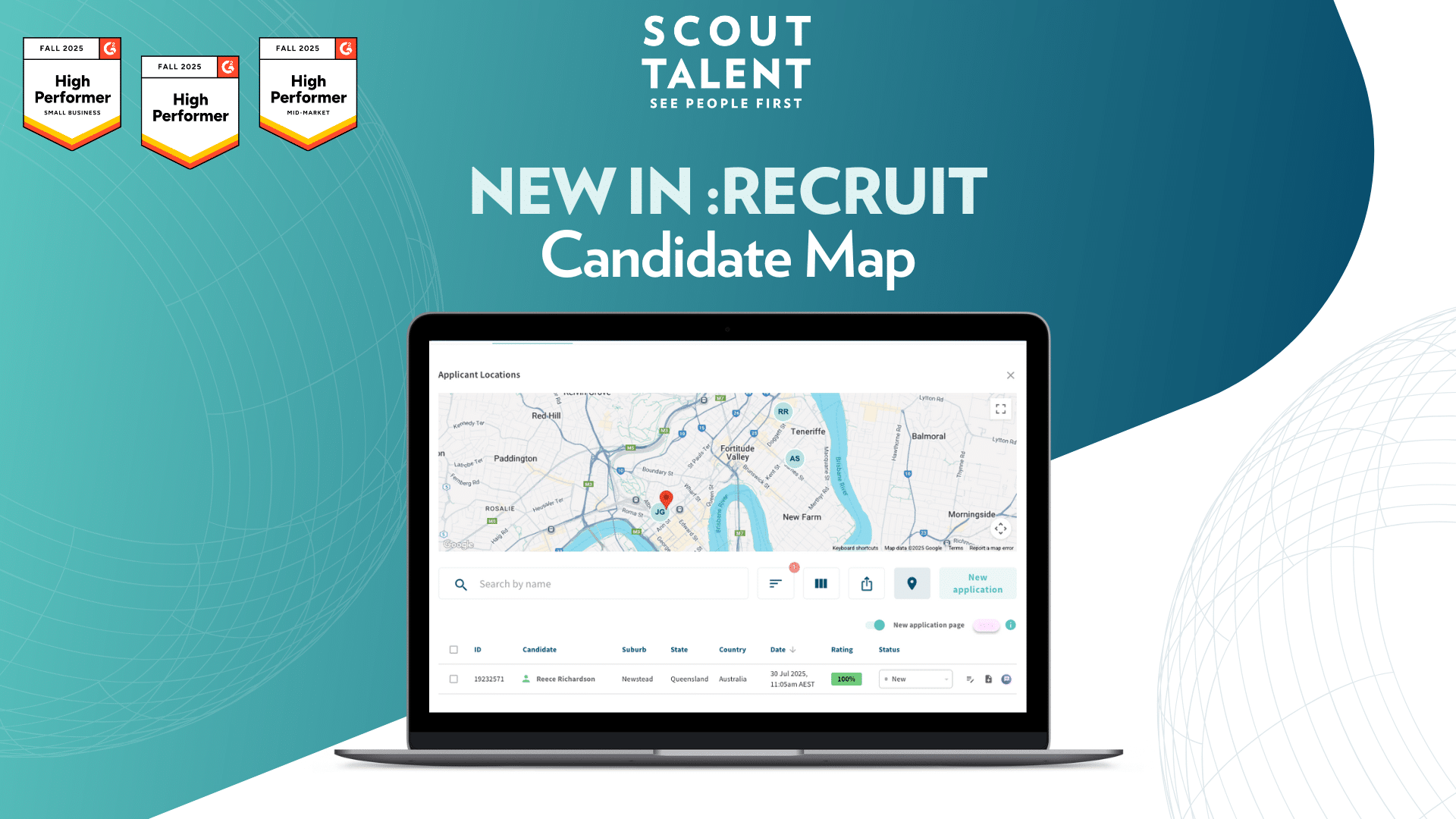Our Product Manager James shares information about new reporting functionality rolling out in Scout Talent: Recruit, including metrics such as status-change, applicant source and time to hire reporting.
There are some exciting changes afoot in the realm of reporting within Scout Talent: Recruit. It’s something we’ve been working on for a while now, and are really excited to begin rolling this out soon to you, our users.
Up until this point, :Recruit users have been able to pull raw data in a .csv file and manipulate this data into their preferred format. While this functionality is very flexible, it doesn’t offer the best user experience.
While we won’t be removing the ability for you to pull .csv data, we are in the process of adding new reporting functionality that will allow you to view your data easily and visually.
Here are three new metrics we’ll be rolling out slowly over the next few months.
1. Status-change report

This report provides a breakdown of the activity of your recruitment team in terms of their changes to application statuses. This data can tell you a variety of things, such as the amount of work on someone’s plate, through to seeing if there are any blockages in your workflow. For example, if you notice the majority of applications are stuck in a status without changing, then there could be an opportunity to modify your procedures to improve your process.
2. Application source report

Source reporting is one that is near and dear to many recruiters’ hearts. They want to know where their quality hires are coming from, and also where they should best allocate funds for advertising to yield the best candidates.
In this application source report, you can view candidates by status and source, then filter results to drill into the data and uncover some great insights.
3. Time to hire reporting

Finally, for our initial rollout: time to hire reporting. Time to hire is one of the main metrics of success in recruitment and HR. The longer your time to hire, the more money you’re spending on recruitment, and the more new hires cost you over the long term. Time to hire speaks to your organization’s efficiency, the job climate and more.
It’s relatively easy to track, from when you post your job ad, to when you offer someone a role. Of course, there will be other metrics you’ll want to track in between to form a better overall picture (such as cost per hire). But time to hire is a foundational metric that will reveal your raw efficiency.
The data you get out is as good as the data you put in! So you may like to shine a light on your data, which can prompt you to identify areas for improvement and make better decisions. We understand CSV files still have their place, but sometimes, they’re not as clear as they should be.
What are your thoughts? If you have any feedback or are exciting about this new functionality that we’ll be rolling out soon, feel free to get in touch with me at james.keele@scouttalent.com.au. Stay tuned for more information, as we’ll be rolling these changes out slowly over the next few months.

James Keele
James Keele is the Product Manager for Scout Talent. He has a background in IT and Software Product Management specializing in the B2B space for the past 3+ years. James’ role is to manage Scout Talent’s product roadmap and software development, aligning them with the overall Scout Talent strategic vision. He is passionate about user experience, automation and the creative process of development.
For more information about any of the above new features, contact us directly at hello@scouttalent.ca or reach out to your Scout Talent Account Manager.
Alternatively, feel free to contact Scout Talent any time on 1 844 772 3302.




